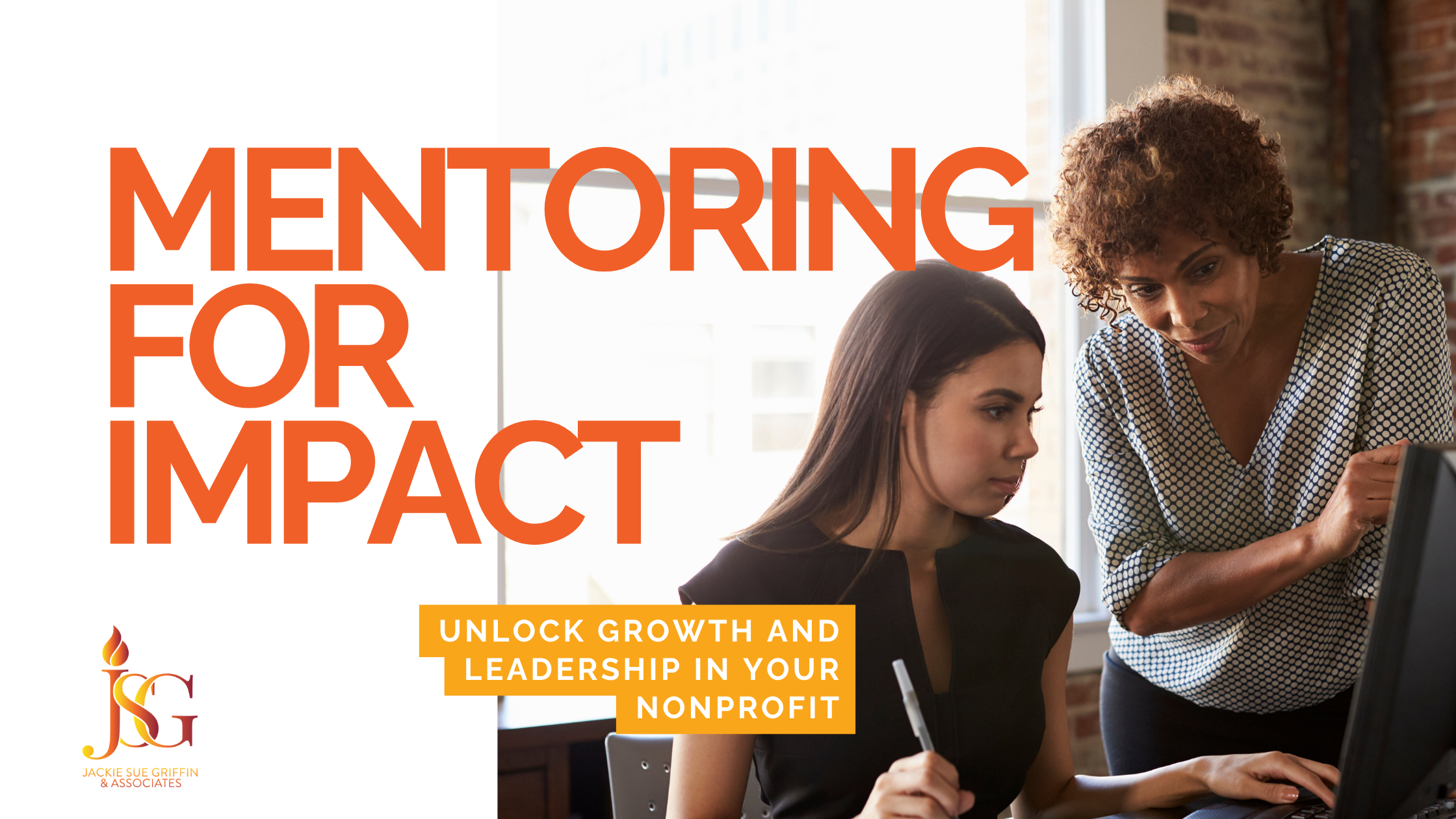
09 Jan Mentoring for Impact: Unlock Growth and Leadership in Your Nonprofit
In the nonprofit world, where purpose-driven missions are fueled by passionate people, mentorship can be a game-changer. Nonprofits face unique challenges including limited budgets and high staff turnover, making it essential to invest in the capital that matters most: people. A well-structured mentorship program can unlock potential, build leadership, and ensure long-term organizational success.
Fostering Professional Development Through Guidance
At its core, mentorship is about guided learning. In nonprofits, this means experienced leaders sharing their knowledge, skills, and insights with emerging professionals. When mentorship is intentional, it bridges skill gaps, empowers employees, and promotes career development. A development coordinator learning fundraising strategies from a seasoned director is just one example of how mentorship can create a ripple effect of growth.
Mentorship also helps employees feel more confident in their roles. Regular check-ins and constructive feedback can clarify expectations and reduce the stress that comes from navigating complex projects alone. This supportive structure encourages mentees to take initiative, try new approaches, and grow professionally.
Cultivating Future Leaders From Within
Leadership development is a pressing need for nonprofits that often struggle with succession planning. Mentorship provides a built-in pathway for nurturing future leaders by offering hands-on learning experiences. When senior staff actively invest in mentoring rising professionals, they ensure institutional knowledge is preserved and leadership transitions happen smoothly.
By fostering leadership internally, nonprofits reduce the costly and time-consuming process of external recruitment. Employees already familiar with the organization’s culture and mission can step into leadership roles with confidence, creating a seamless flow of expertise.
Strengthening Organizational Culture and Retention
Mentorship isn’t just about skill-building—it’s about building a supportive and inclusive workplace culture. Employees who feel guided, valued, and connected are more likely to stay. Research consistently shows that people are less likely to leave organizations where they experience mentorship and professional investment. In the ever-competitive nonprofit job market, this can be a defining factor in retention. A positive mentorship culture fosters trust and engagement. This creates a cycle where mentorship-driven development leads to stronger team cohesion and higher overall productivity.
Designing an Effective Nonprofit Mentorship Program
An impactful mentorship program doesn’t happen by chance—it requires thoughtful design. Start by defining clear goals, such as enhancing leadership skills or boosting program management capabilities. Pair mentors and mentees based on shared interests and career goals. Establish regular check-ins, set achievable milestones, and create a culture of open communication.
Training for mentors is equally important. Equip them with the skills needed to provide meaningful feedback, offer career guidance, and navigate challenging conversations. Mentors who feel supported are more likely to stay engaged and provide valuable learning experiences.
Encouraging Two-Way Learning and Collaboration
While the traditional mentorship model involves senior staff guiding junior employees, two-way learning can be even more powerful. Mentors benefit by gaining fresh perspectives and staying adaptable in a rapidly changing nonprofit landscape. This collaborative exchange fosters innovation and mutual respect.
Encourage mentors to be open to learning from their mentees’ unique insights. Fresh perspectives on technology, social media strategies, or new community engagement techniques can inspire creative solutions that benefit the entire organization.
Measuring the Impact of Mentorship
Success in mentorship should be tracked and celebrated. Use performance reviews, feedback surveys, and project outcomes to assess the program’s effectiveness. Are mentees achieving professional milestones? Are mentors finding renewed purpose in their roles? Celebrating these successes reinforces the program’s value.
Consider creating an internal recognition program where mentorship achievements are highlighted. This can boost morale and encourage wider participation in future mentorship initiatives.
Mentorship in nonprofits is more than a professional development tool—it’s a commitment to sustaining the mission through leadership and growth. By fostering meaningful connections, organizations can strengthen teams, amplify impact, and build a resilient future.

No Comments